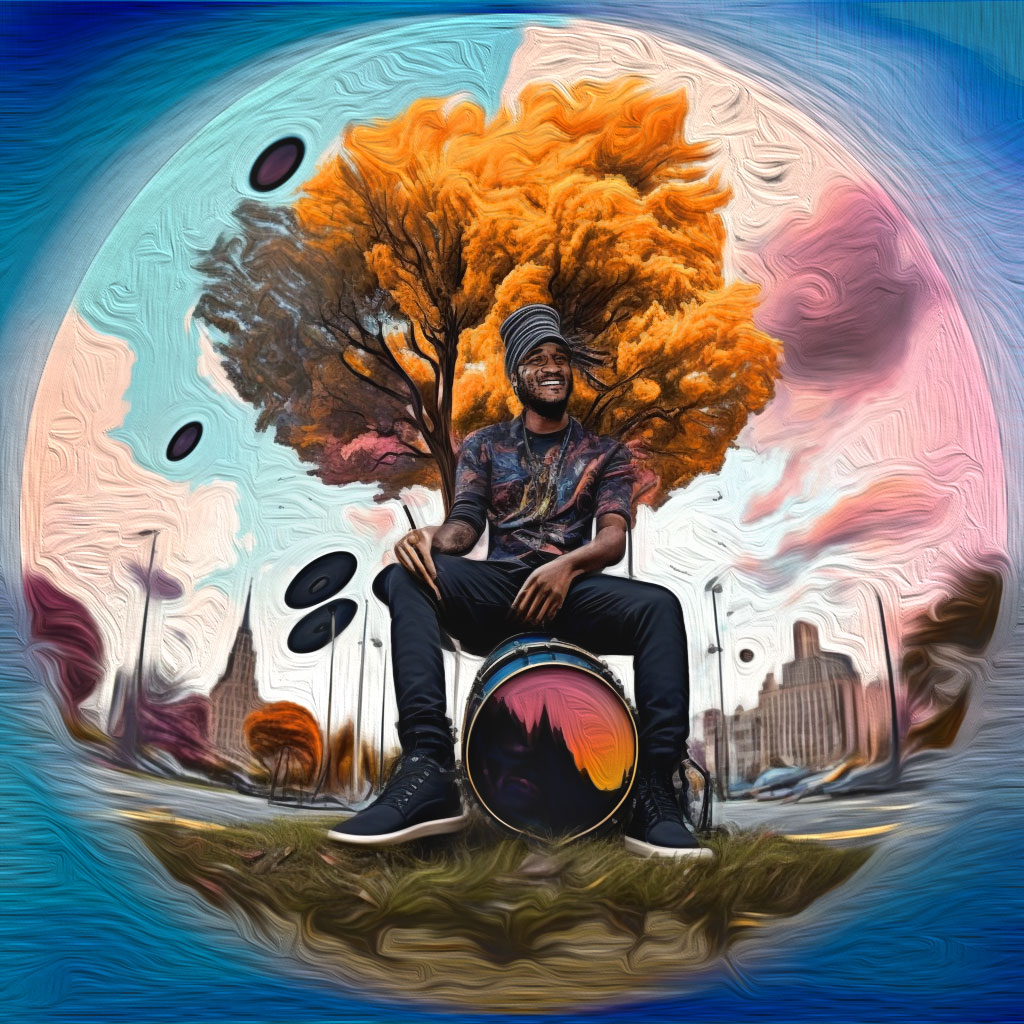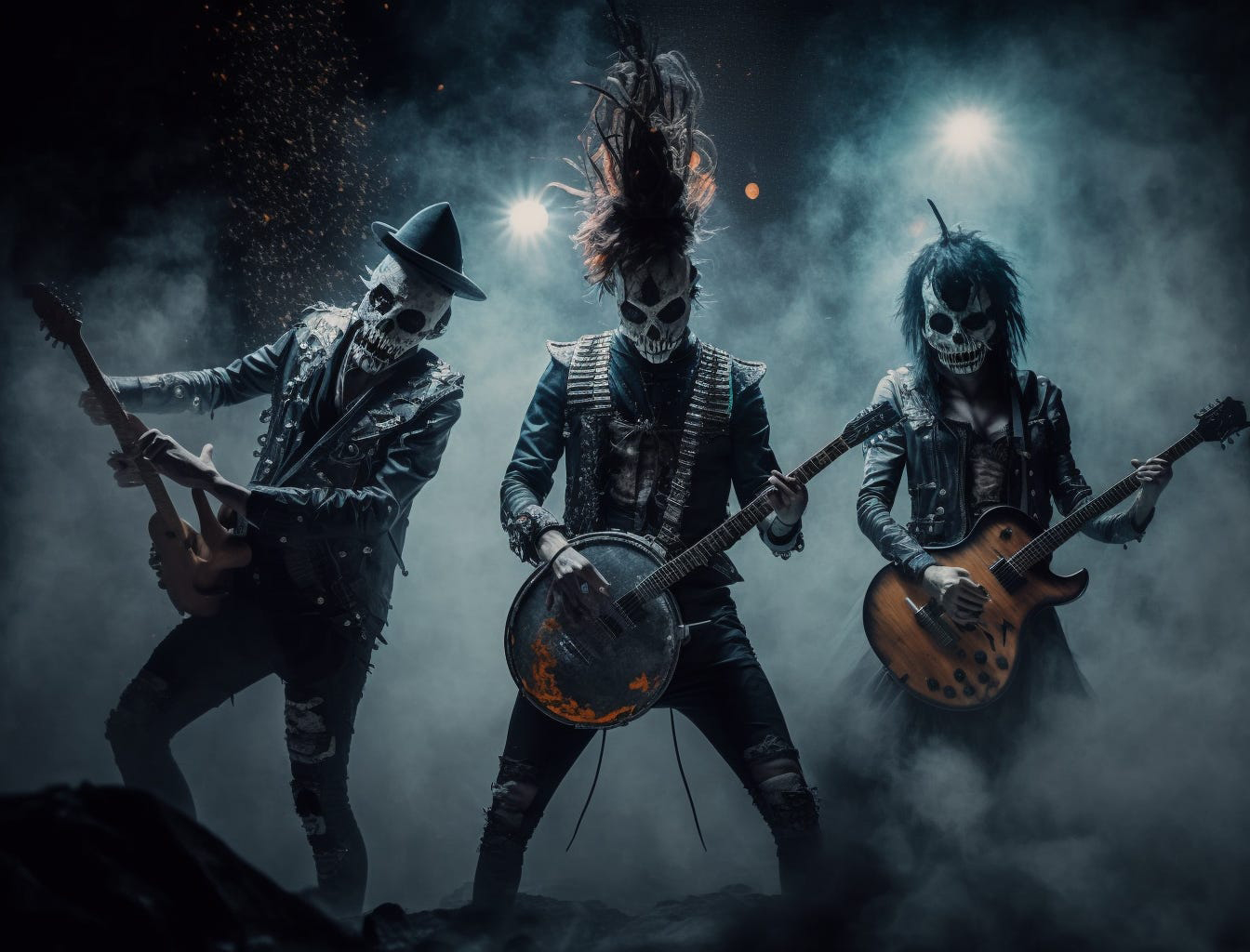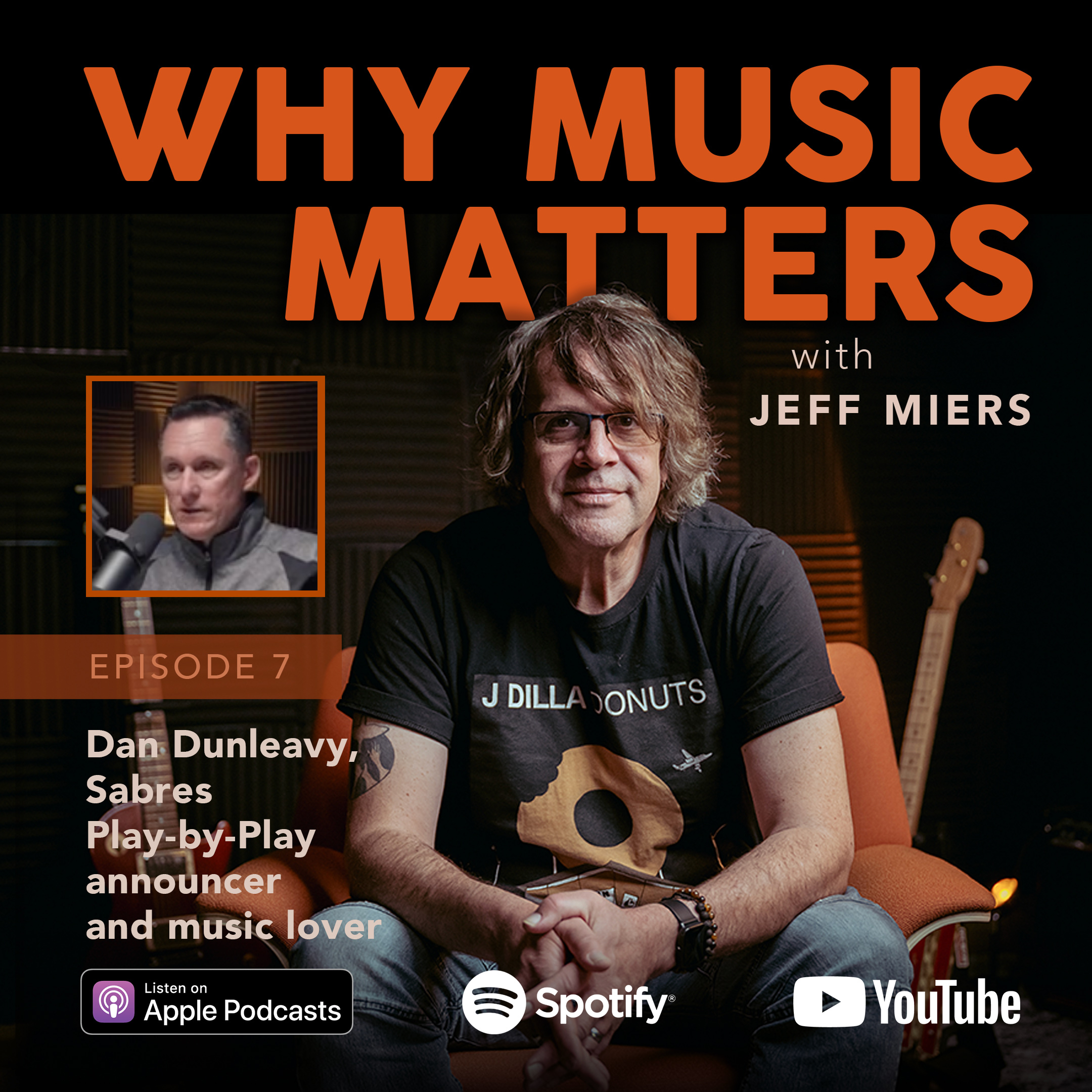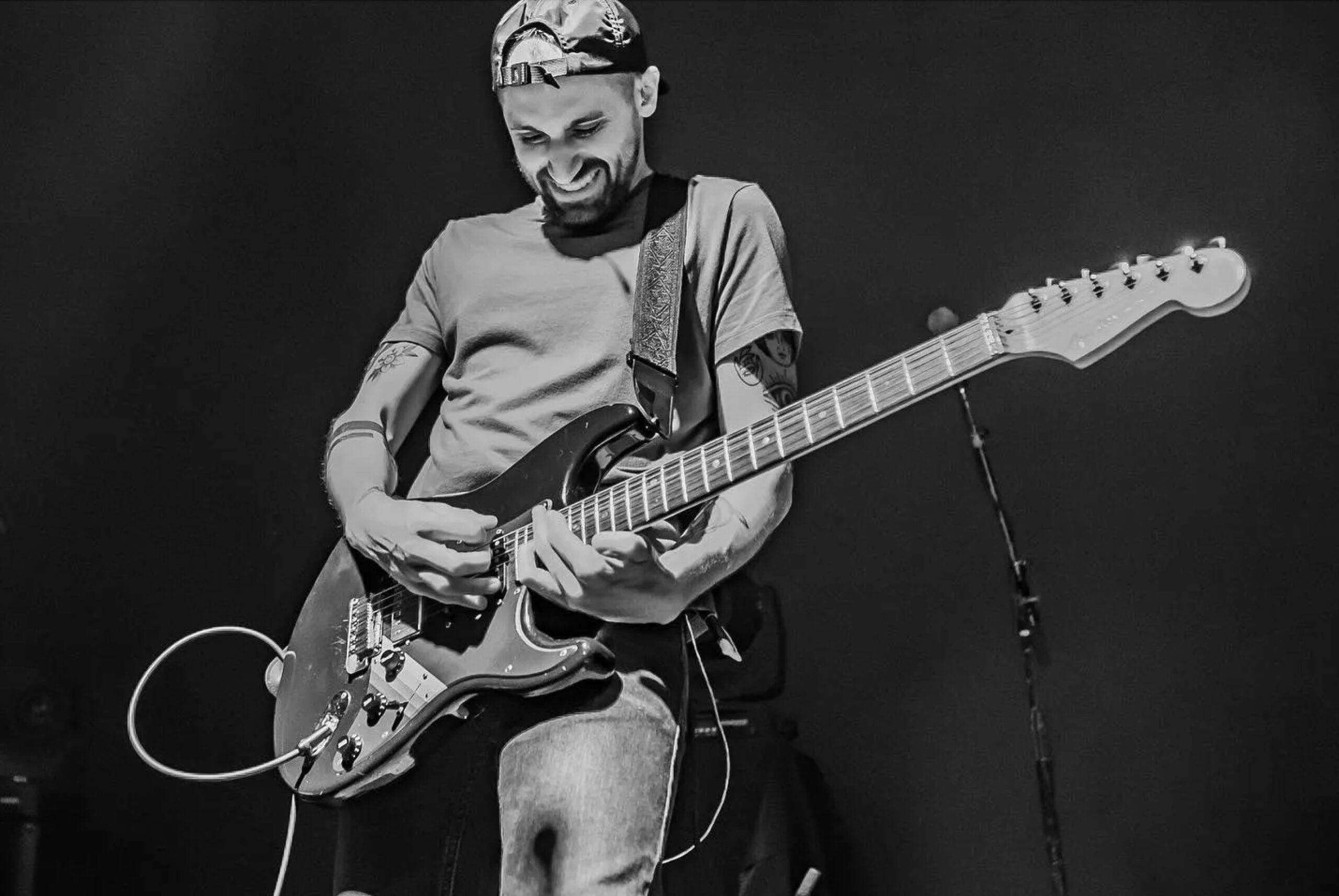How a Buffalo drummer turned a weekly residency into a must-see event
By the time he launched his band The Outcome 5 years back, Damone Jackson was already regarded as one of the most virtuosic and dynamic drummers in all of Western New York. Today, however, Jackson needs to be viewed through a wider lens. He’s become a confident band-leader, a fearless explorer of the outer limits of without-a-net improvisation, and a drummer with an all-but-peerless ability to blend deep pocket playing with spur of the moment forays into rhythms that push the envelope of genre classification.
A long-term residency at the Central Park Grill on Main St. in Buffalo has provided Jackson and his cast of musical co-conspirators an opportunity to hone their collective improvisational skills while simultaneously building a devout, diverse and multi-generational fan base for whom Tuesday evenings at CPG have become a mandatory weekly ritual. Along the way, the Damone Jackson Outcome has raised the bar on unflinchingly original Buffalo music.
I caught up with Jackson recently, and we discussed the history of The Outcome and his hopes for the ensemble’s future.
The time between the beginning of your residency at Central Park Grill, more than 4 years ago, and where you are now, as documented by the recent live recording, represents some serious growth and evolution. Can you talk about what this period of time represents for you?
When all of this started, I had just left Robert ‘Freightrain’ Parker’s band after a long run, and I didn’t know exactly what I was going to do. But (guitarist) George Puleo had been talking to me a lot throughout this period, and he said ‘OK, now it’s time for you to start your own band.’ He was so confident and insistent about it. And man, I wasn’t so sure. I said, ‘OK, well, we’ll give it a shot and see what happens.’
The band at first was me, George, Paul Yates on bass and GC (Geraldo Castillo) on percussion, and then we added Nelson Rivera on sax. Our first gig was at Mohawk Place, and then we bounced around and played one-off shows at various places. And then one day, George called me and said, ‘Hey, I got this residency for you at Central Park Grill.’
At that point, Paul, GC and Nelson were gone – all great players, but all just too busy to do this full-time, which I understood. And so I needed to put together a new version of the band. And I admit, I was having doubts. I was’t sure how much I believed in the project. I was thinking, ‘Man, it’s just jam music, and what does Buffalo really need with another jam band? And this is all improvised stuff we’re doing, so nobody’s gonna be hip to it.’
So we started the CPG residency with me having this mindset. And at first, very few people were coming. And then it slowly started to grow, but I was feeling it was time to change it up musically, and so I thought, ‘Let me get some fusion cats in and see what happens.’ Luckily, Jay Moynihan (sax/guitar) and Jack Kulp (bass) were into it. And within a couple of weeks of those guys joining, the crowd started getting noticeably bigger.
What was the vibe you were getting from the crowd at that point? This was an in-your-face style of virtuosic improvisation you guys were laying down then. The music wasn’t exactly holding people by the hand…
The vibe was that people were starting to take it really seriously. They were digging it. And they kept coming back. And that carried us for about a year, at which point we decided to go into the studio and try to capture what was happening on stage in a recording studio setting.
After that first album came out, everything changed, in terms of the residency. The fans were locked in to what we were doing, they liked the record, and they made it clear that they wanted another one. So we went back in to do another record, and then Covid hit. And all of a sudden, the residency was canned. And that lasted for just about a full year.

How did you keep the momentum you’d created as a band going during this time when you couldn’t perform in front of an audience?
We were setting up in Jay Moynihan’s driveway out in Sanborn and doing these streaming shows, just to keep our vitality as a band happening. We missed playing with each other so much, we just had to play, man. And during this time, we kept knocking on CPG’s door, because they were still open, but they weren’t doing any live shows. We were able to do some limited capacity shows at the Sportsmen’s Tavern, which was super helpful, but man, we really missed the weekly residency.
At the time we released the second album, during Covid, I was really digging the guys in the band, I really was. But I started thinking ahead and planning for the future. And as much as that version of the band was great, I was thinking that we were starting to get a little bit stale, that maybe we’d plateaued. This is absolutely not to throw any shade on Jay and Jack, because those guys are amazing. But I felt deep inside that we were just not going to grow beyond what we had – we were all starting to know what each other was going to play, you know? And the whole point had always been to remain unpredictable, to each other as musicians and to the audience as listeners. The idea of the Outcome was to expect the unexpected, because we never knew what was going to happen. Once we did know what was going to happen, then that version of the band had served its purpose. And deep inside, I knew it was time for a change.
Was it difficult for you to break up that lineup?
Everybody was cool. We ended it on good terms. I still wanted to have those guys be part of a rotation of musicians that could be part of this. But ultimately, it just seemed like it was a good time to start from scratch again, and to bring some new elements into the band and see where it might lead.
It was a risky move to do this, considering that you’d built a strong following that really loved that version of the band. How did fans react?
Nobody saw it coming. We had a consistent crowd of pretty much the same people coming every week, and I’m so grateful to all of them. But I just needed to shake it up. And I wanted some younger people to be in the crowd too, you know? I asked myself, ‘If I were to try to aim younger here, what would happen to my audience?’ I knew it was a huge risk. But I just had to take it.
I ended up getting Cal Palmer on bass first, and then (keyboardist) Harry Graser and Michael Rupoli on percussion. Then Cal got super busy, and we got Honey Henry on bass. And then I added DJ Sike – and that just radically changed the band, man. DJ Sike opened up a whole new world for us. It was just ridiculous, immediately, and it felt so special, because I don’t know of any other bands using a live DJ as part of a totally improvisational ensemble. I remember when George heard Sike for the first time, he was like, ‘Oh yeah. This is it.’
You said the whole mindset behind this new version of the band is, ‘We don’t have to bleed the bucket anymore.’ What did you mean by that?
We could all dial it back now, and leave so much space in the music for different things to happen, and really just listen, and underplay, and see where the music takes us. It’s so much more groove-based. There’s so much new, young blood happening with the Outcome now. And as soon as the band changed, the whole audience changed, and the crowds at the residency grew to the biggest yet, and it really helped both the band and CPG itself, because they were having some real troubles coming out of the pandemic. I feel good about that, because CPG always believed in us, and they took a chance with us by bringing us back during a really tough time. We really helped each other. I’m blessed that people believed in the vision of this band, not only the other musicians, but the city itself.
At this point, the Outcome really does stand out on the local scene, because you’re playing a completely unique set of improvised music every time, and yet, it sounds to the listener like you’ve rehearsed all this, or even written it all out.
It’s true. People will come up to me and say, ‘Man, you guys must rehearse all the time to get this tight.’ And the truth is, we don’t rehearse at all. It’s fresh and new every time.
Even though it doesn’t really resemble anything else, I do feel that what you’re doing is very Buffalo, in the sense that you’re playing and directing the band in a way that proves you have the courage of your convictions. And you have a band that represents both the personal and musical diversity of the city and the region.
I do think it should be a Buffalo thing, to do what this band has done – to take that risk, and to say ‘We’re gonna play what we’re gonna play on our own terms, and if you like it, fine, and if you don’t, that’s fine, too’.
And when musicians are coming through – and I’m talking top dogs, people from here who have gone off and toured the world, and they come back and see what we’re up to and say, ‘Yeah, this is what it should be here’ – man, that’s better than a paycheck to me, because it means we are really getting somewhere. We’re doing our part to make it clear just what’s capable of happening here.
Catch the Damone Jackson Outcome every Tuesday at Central Park Grill (2519 Main St.), beginning at 7 p.m.




Leave a Reply